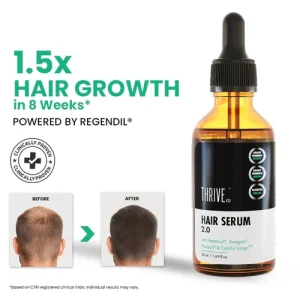In recent years, the skincare industry has undergone a transformative evolution driven by the demand for personalized solutions. Gone are the days when consumers had to rely on one-size-fits-all products, leading to a burgeoning interest in tailored skincare regimens. Whether it’s through advanced technological innovations or a deeper understanding of individual skin biology, personalized skincare is reshaping the beauty landscape.
The Shift Toward Personalization
The trend towards personalized skincare can be attributed to various factors, including rising consumer awareness about skin health, advancements in technology, and the growing desire for authenticity in beauty products. Today’s consumers are more informed than ever, seeking products that cater to their specific skin types, concerns, and lifestyles.
Understanding Skin Diversity
Everyone’s skin is unique, influenced by genetics, environment, and lifestyle choices. Traditional skincare typically offers a limited range of options aimed at broad categories such as oily, dry, or combination skin. However, researchers have demonstrated that skin can differ significantly even within these established categories. For example, two individuals classified as having oily skin may experience different levels of hydration and sensitivity.
The Role of Technology
Technology plays a crucial role in the personalization of skincare. Advanced algorithms, artificial intelligence, and machine learning are now being employed to analyze individual skin needs. At the forefront of this revolution are online quizzes and diagnostic tools that allow consumers to input their skin conditions, concerns, and goals, generating tailored product recommendations.
Leading brands have harnessed this technology to create algorithms that not only suggest products but also consider factors such as age, climate, and even hormonal changes. Brands like Proven Skincare use data-driven insights to create tailored formulations, further enhancing the consumer’s experience.
Consultative Approaches: The Dermatologist Connection
As personalized skincare gains popularity, dermatologists are increasingly becoming key players in the space. No longer restricted to treating skin concerns, many dermatologists now provide customized skincare consultations, developing curated regimens that are science-based and targeted.
Personal Consultations vs. DIY Solutions
While online solutions provide convenience, nothing quite compares to a professional’s expertise. Personalized consultations allow consumers to understand not only the products they need but also the underlying factors affecting their skin health. The growing recognition of the value of professional advice has led many to seek tailored regimens over mass-market options.
The Impact of Consumer Demand
Consumer voices are powerful, and the skincare industry has taken note of the desire for products that speak to individual needs. Brands that have traditionally operated on a broad scale have had to adapt their strategies to incorporate personalization. A 2021 study showed that nearly 50% of consumers are willing to pay more for skincare products tailored to their unique needs.
Brands like Curology exemplify this shift, offering customized formulations delivered directly to consumers based on a detailed skin survey and follow-up consultations. This move towards subscription models not only ensures a continuous tailored experience but also builds brand loyalty among customers who appreciate the attention given to their individual needs.
Challenges in the Personalized Skincare Market
Despite the enthusiasm for personalized skincare, several challenges remain. The cost of developing tailored products can be high, leading to higher prices for consumers. Moreover, the vast amount of data that skincare companies collect raises significant privacy concerns among consumers. The industry must navigate these challenges carefully, balancing innovation with transparency.
Regulatory Concerns
The beauty industry is also subject to regulations that vary by region. Personalized cosmetics often straddle the lines of cosmetics and pharmaceuticals, prompting regulatory scrutiny. Brand transparency about product formulations and sourcing is becoming more important as consumers demand accountability, particularly in a market where misinformation can spread easily.
The Future of Skincare Personalization
As we look ahead, the future of personalized skincare appears promising. With continuous advancements in technology and a growing focus on holistic approaches to beauty and wellness, brands are likely to invest further in personalized solutions. This may include expanding the types of products that can be customized—from serums and moisturizers to even makeup formulations.
Furthermore, the technology behind skin analysis continues to evolve. Future innovations could lead to diagnostic devices that help users understand their skin in real-time, providing immediate feedback on hydration levels, UV exposure, and more.
Conclusion
The rise of personalized skincare marks a significant shift in the beauty industry, emphasizing the importance of individuality and authenticity. As consumers seek products that resonate with their unique skin needs, the industry is responding with tailored solutions that promise not just beauty but also improved skin health. The future of beauty may very well be in its tailored approach, allowing each individual to embrace their unique skin story.
Related Products
-
Sale!
Product 2025-10-01
Cosmetic Products€14,90Original price was: €24,28.€18,18Current price is: €18,18.
€18,18 incl. VAT -
Top Cosmeric Product 2024 | Best Skincare & Beauty Solutions
Body Care€10,00€12,20
€12,20 incl. VAT -
Sale!
Soluta.
Accessories€200,00Original price was: €244,00.€244,00Current price is: €244,00.
€244,00 incl. VAT





